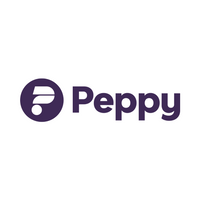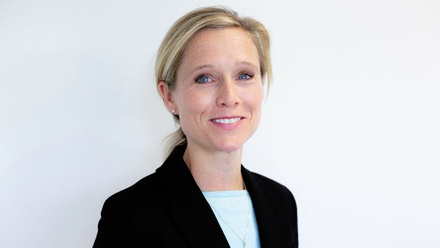How employers can turn healthcare challenges into opportunities
The rising cost of healthcare benefits is one of the biggest headaches reward and benefits leaders face today.
With private medical insurance premiums skyrocketing and absenteeism rising, it is essential that organisations shift their wellbeing strategies from treatment to prevention.
In fact, employers are in a unique position to transform employee wellbeing, and social health in general, by prioritising proactive healthcare strategies.
This is because with healthcare systems, like the NHS, under immense strain, the “system” is no longer able to support your people well enough to help you achieve your strategic goals.
With nearly 30 years of nursing experience, including 11 years in fertility and a background in general surgery and gynaecology, Peppy's director of clinical services, Laura Carter-Penman, is a champion of nurse education and positive change. Here we speak to her about proactive health strategies.
Laura, why should employers care about prevention in managing healthcare costs?
Prevention is everything. It’s the “not-so-secret” secret to avoiding big, expensive, long-lasting problems down the line.
If employees are encouraged and enabled to take good care of themselves proactively, the expensive interventions won’t be needed - or at least the need for them will be dramatically reduced.
Screening and early detection tests play a huge role too. Bowel cancer screening, for instance, can catch potential issues before they develop into something life-threatening.
Encouraging employees to take these tests is critical. Prevention isn’t just better for people - it’s far cheaper for businesses (and society) in the long run.
Can you give us a real life example of employer-led preventative health in action?
A Peppy Men’s health user springs to mind. His name is David, and his story is a great example of why employers play such an important role in preventative health.
After a friend of his made a casual comment about his chest during a hot tub gathering, he came to us to ask about his unusual symptoms. This quickly led to a diagnosis of male breast cancer - a rare and often underdiagnosed illness.
David’s work benefits gave him access to the right information and expert guidance at just the right time.
This was life-saving support for David. It’s a brilliant reminder of how employers can make a real difference by offering benefits that empower their people to discuss embarrassing or awkward concerns in a safe space. Men are notoriously bad at going to the doctor.
How does this philosophy extend to areas like fertility?
Fertility has become a hot topic for employers in recent years. When your people face these challenges, they are physically and emotionally drained. They need time off and are likely distracted during what can be a very long and difficult journey.
Actually, 1 in 6 couples face fertility challenges. That’s a huge proportion of your workforce. Ok, employers can’t prevent fertility issues happening, but they can encourage small, proactive lifestyle changes that can make a world of difference.
For men, things like cutting back on alcohol, quitting smoking, and eating nutrient-rich foods can dramatically improve sperm health.
And for women, addressing conditions like PCOS early can save them from the emotional and financial burden of lengthy and invasive treatments like IVF.
Employers have a real opportunity here to step in early with education and support.
The result? Happier, healthier employees - and less stress on your benefits stack.
Rehabilitation is another important aspect of healthcare - how does it complement prevention?
If prevention stops the fire from starting, rehabilitation ensures the flames don’t flare up again.
Take post-cardiac rehabilitation as an example. It goes far beyond fixing the heart it helps people build healthier habits, look after their mental health, and reduce the chances of it happening again.
Similarly, addressing mental health holistically with wraparound care such as counselling, medication, and community support is essential to ensure people truly recover.
What many healthcare systems miss is that recovery doesn’t stop when a procedure is complete or medication is prescribed.
Whether it’s transitioning from fertility treatment to pregnancy care or recovering from depression, people need ongoing support.
Employers who offer personalised aftercare can ensure their teams don’t feel abandoned at the most vulnerable moments.
Why should businesses care about prevention and rehabilitation?
Simply because prevention saves lives and money. Catching things early is always cheaper and more effective than waiting for a full-blown crisis.
We know that early detection leads to better outcomes.
Screening, for example, can identify a potential issue when it’s small and manageable rather than life-threatening.
Yet, a third of people still skip vital screenings like mammograms or smear tests. That’s bananas.
And it’s not because they don’t care about themselves - it’s because they’re scared or don’t know enough about them.
Employers can change that. Create a culture where proactive healthcare is normalised.
Encourage employees to take time off for screenings.
Better yet, lead by example - get senior leaders talking about their own health check-ups. What’s better than the CEO saying, “I’m off for my colonoscopy”?
Are employers ready to step into this healthcare gap?
They have to be. Healthcare systems are under pressure, and the responsibility is increasingly landing in the lap of employers.
The NHS and private medical insurance providers are under immense strain.
Employers who embrace their role in filling this gap - whether through personalised health solutions, wellness initiatives, or accessible healthcare options are not only supporting their people but positioning themselves as forward-thinking, desirable places to work.
With workforces now spanning apprenticeships at 16 through to employees in their seventies, there’s no one-size-fits-all approach.
The key lies in tailoring healthcare solutions to meet the diverse needs of every individual.
How can employers know who would benefit from which preventative health initiative?
Herein lies the real challenge. Without truly personalising your benefits, you can’t.
Sure, you can offer gym memberships, mindfulness apps, and health screening perks, but making sure your people 1) know about them and 2) use them is really tricky.
Everyone is facing different challenges. Employers are responsible for supporting a workforce as diverse as it is dynamic - spanning men, women, transgender individuals, neurodivergent employees, people with disabilities, and multiple generations, each with unique needs and challenges.
It’s a huge spectrum of healthcare needs to cover.
The only way to provide meaningful preventative support is to truly understand each individual.
And for that, you need modern benefits tech - intelligent solutions that recommend and remind employees about the most relevant and impactful benefit for them.
Peppy’s benefits platform offers an incredible employee experience that drives proactive health habits and boosts benefits utilisation like never before.
With AI-powered insights, you’ll spot health trends, address gaps, and build a preventative strategy that supports a happier, healthier workforce.
Join us for a live demo to see it in action:
Live Demo: Introduction to Peppy’s Employee Benefits Platform
📅 20th March 2025
⏰ 12pm GMT
Supplied by REBA Associate Member, Peppy
Peppy is a global app-based employee benefit giving employees access to expert clinical care in menopause, fertility, pregnancy, and more - trusted by 250+ companies and reaching over 3 million people.








